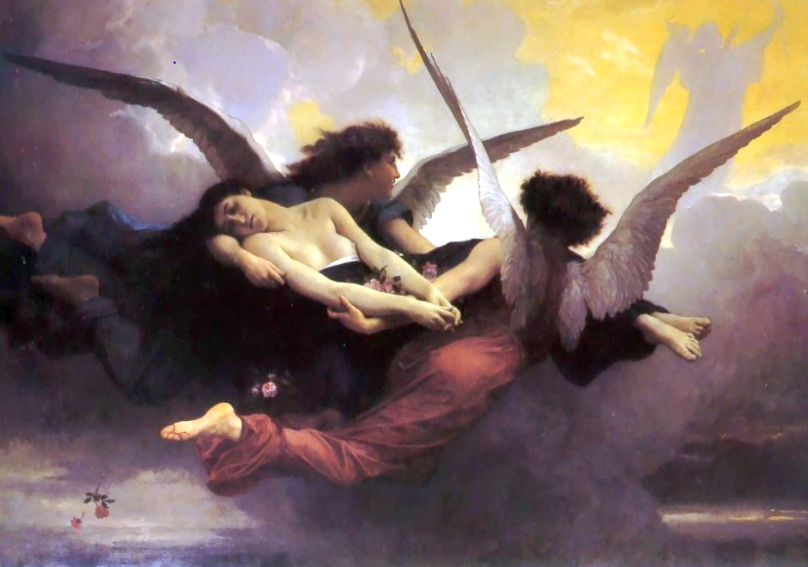Death and Funeral of Father Turgis.

The Morning Star and Catholic Messenger., March 08, 1868, Morning, Page 4
Very, few, probably, of the citizens of New Orleans were not familiar with the name and fame of Father Turgis, Many who, in the street, sometimes passed without a glance of recognition a coarsely-clad and unassuming priest, had but little idea that it was the man for whose character they had once entertained such a profound respect, and whose memory yet lingered in the secret recesses of their hearts among the images of those stirring events no longer fresh, but still sacred, Each one knew Father Turgis’ name, but so completely did he abstract himself from the arena of public attention, that each one thought himself the only one who remembered him.
The funeral obsequies which last Thursday honored the interment of his mortal remains astonished many with the extent and magnitude of the esteem in which this unpretending, humble priest had been held by the whole community. From the Venerable Archbishop, who officiated in the ceremony, to the youngest orphan, that sadly followed her benefactor to his last resting-place, every class of the population was represented. “The wealthiest and the poorest, the most distinguished and the most unknown, all contributed to pay the last tribute of their veneration to his memory. The subjoined details from the local column of Times will an idea of the character and extent of the demonstration:
The pall-bearers who acted on the occasion were: Gen. Beauregard Gen. Gibson, Col. Numa Augustin, Major Leon Queyrouze, L.S. Deloche, John Thibaut, O. DeArmas, T. Guyol. Col. Breaux, (formerly of the Thirtieth Louisiana), grand marshall; Capt. Knell, assistant.
The funeral cortege altogether was one of the largest ever witnessed in this city; was as large as that of Col. Chas. Dreux, of Gen. Sidney Johnston, or of Gov. Allen. The procession upon foot was many squares long, as it marched along Rampart, Canal, and other principal streets; and in passing down Royal street, it seemed to reach from Canal to the Cathedral.
The Rev. Isidore Turgis was a native of France, and had attained to the age of sixty-three years, of which number thirty-eight had been spent in the priesthood. Before coming to this country he had been chaplain in the French army and fleet, and in that capacity had passed through the campaigns of the Crimea, Italy, and Cochin China. This military experience had left traces that could be detected in a certain simplicity and straightforwardness of conduct which rather slighted the mannerisms of an artificial society. But the warmth of his charity and the delicacy of his piety prevented any suspicion of sternness or severity from attaching to him.
“Having arrived in Louisiana during the year 1860, he was assigned as Vicar of the Cathedral, but he was not destined long to enjoy relief from the clash of arms. The great American war soon broke out, and Father Turgis started for the scene of action as chaplain of the Orleans Guards. His services at Shiloh and Farmington are matters of history, and it is in Gen. Beauregard’s order of the day, after the former of those actions, that his name receives such honorable mention. Subsequently, upon the coalition of his battalion with the Thirtieth Louisiana, he became chaplain of that regiment, and remained in that capacity until the termination of the war.
His devotion, his courage, and his wounds secured to him the respect and admiration of all who came within his sphere of action. Many a poor soldier whose wounds he staunched on the field of battle, or over whose sick bed he watched in the hospital, will remember his name with blessings as long as life lasts.
But it was not only a a soldier-priest that Father Turgis shone so pre-eminent. It was not only soldiers who followed him to his grave. A zeal so active as his could not remain idle on any field of operations, and it was his charitable labor in the walks of peace that gathered around his remains by far the larger portion of that vast assemblage.
Besides the care of the chapel on Rampart street, given to him after his return from the war, he had charged himself with the directorship of the Southern Hospital for invalid soldiers, the administration of the Asylum for Confederate Widows and Orphans, and of the House of the Good Shepherd: Ardent, yet enduring in his attachments, he could not forget the cause which he had loved so well, and his charitable zeal was impressed with the patriotism which had identified him with the Confederate fortunes. His was not a nature to wrap up the past in a fallen flag and bury them together, nor to accept the parole of a prisoner as a joy that should divorce him forever from the memory of comrades who had never surrendered.
Father Turgis spent his strength in ministering to the victims of the epidemic which raged among his people during the past summer, and it is thought that he never fully rallied from the exhaustion resulting from his fatigues at that time. Who will say that such a death, though not sudden and violent, does not merit the martyr’s crown? He is gone and his memory as a patriot, priest, and martyr will long remain in benediction among the people.
http://the-american-catholic.com/2014/05/25/father-turgis-preacher-by-deeds-not-words/












































